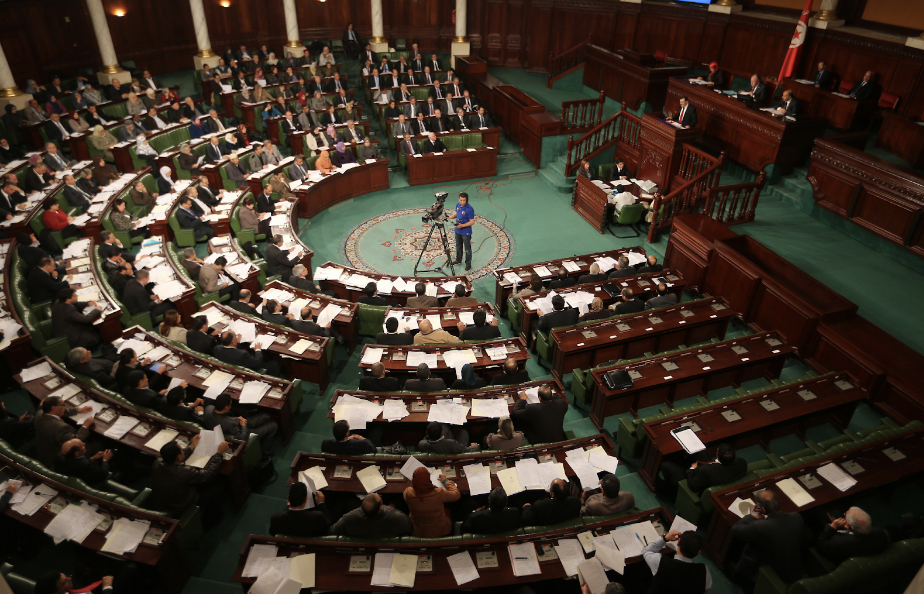Tunisia’s Referendum: The End of the Last Hope of the Arab Spring
Supporters of President Kais Saied celebrate his July 2021 announcement of the suspension of parliament. Photo: Reuters via Al-Arabiya.
At 11:30 am on the morning of Dec. 11, 2011, Mohamed Bouazizi, a fruit vendor in the small Tunisian city of Sidi Bouzid, publicly committed an ultimately fatal act of self-immolation in protest of his family’s perceived mistreatment by corrupt and repressive local police. Street protests followed across Tunisia, Egypt, Syria, Libya, and beyond, kicking off the period of pro-democracy optimism known as the “Arab Spring.” Muammar Al-Gaddafi was forced from power and executed in Libya, Egypt’s long-time dictator Hosni Mubarak stepped down, and Algeria ended the 19-year-long state of emergency that had allowed unchecked abuses by security forces. Backlash, however, was swift and all-encompassing: Syria’s Bashar Al-Assad massacred and tortured protestors, Egypt’s semi-elected Islamic government was ousted in a military coup, and Syria, Libya, and Yemen devolved into long, bloody civil wars. It was only in Tunisia, where it all began, that the revolution could be seen as having some success, but this past summer, most of the remnants of that progress were wiped away.
After the widespread “Jasmine Revolution” protests of 2011, Tunisia’s president of 24 years, Zine El Abidine Ben Ali, fled to Saudi Arabia and was eventually replaced by a transitional government led by civil society organizers, Islamic parties, and labor unions. Despite conflict between secular and Islamic parties, ongoing corruption, and regional instability, the country inched towards democracy. Freedom of speech was somewhat expanded, journalism and culture flourished relative to the repression elsewhere in the Middle East and North Africa, and the Tunisian National Dialogue Quartet won a Nobel Peace Prize. In 2019, constitutional law professor Kais Saied became Tunisia’s second democratically-elected president with 72% of the run-off vote.
Despite the opening of the political sphere, unemployment and alleged public graft remained almost untenably high. On July 25, 2021, as demonstrations racked the capital, Tunis, President Kais Saied suspended parliament and dismissed the prime minister. He announced a curfew and an indefinite period of “extraordinary measures.” Human Rights Watch called Saied’s September publication of Presidential Decree No. 117 “a first step towards authoritarianism.” In February 2022, Saied dissolved Tunisia’s top independent judiciary and blocked foreign funding for CSOs. In June, 57 judges were fired for alleged involvement in corruption and terrorism, and a number were doxxed online and subjected to gender-based harassment. Then came the constitutional referendum.
Tunisia’s national assembly seen during the ratification of Tunisia’s initial post-Arab Spring constitution, in January 2014. Photo: AFP via Al-Jazeera.
Following promises indicated in his September decrees, Saied announced in May that Tunisians would vote on the adoption of a new constitution, which greatly expanded presidential powers, on July 25, 2022. President Saied’s background is in constitutional law, and whether his decision to essentially dismiss the government and concentrate power in the presidency was an example of corruption or his belief that it was the best way to combat the country’s economic crises, his proposed new constitution marked a fundamental change in the structure of the Tunisian government. While there was consensus that the 2014 constitution needed reform, the international human rights community dismissed the constitutional referendum and associated ‘reforms’; Freedom House called it “brazen disregard for constitutional order and political pluralism [that] will only exacerbate the country’s difficulties.” There were complaints that the drafting process for the constitution did not include an adequate cross-section of the country. The final edits to the proposed constitution were made just 17 days before the referendum, and drafts were only made public in the month immediately prior. Turnout in the July 25 referendum was just 30%, with most opposition parties boycotting. Unsurprisingly, the new constitution passed.
In the days following the referendum, the US Embassy released a statement “shar[ing] the concerns expressed by many Tunisians that… the new constitution could weaken Tunisia’s democracy and erode respect for human rights and fundamental freedoms.” Amnesty International’s Regional Director for the Middle East and North Africa, Heba Morayef, called it “deeply worrying” and described the new constitution as a document that “undermines human rights and jeopardizes the progress made since the 2011 revolution.” It is a cliche to ponder if any one development can mark the death of the Arab Spring or if war and counterrevolution destroyed its legacy years ago. Nevertheless, to supporters of human rights and advocates for fair and transparent governance in the Middle East and beyond, the results of Tunisia’s constitutional referendum are an expected disappointment.


